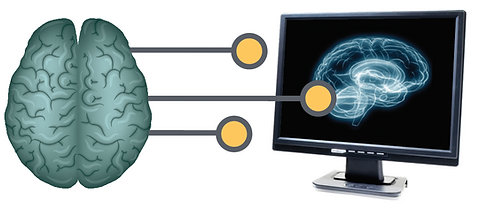WHAT IS NEUROPSYCHOLOGY?
Neuropsychology is a branch of psychology that studies the relationship between the brain and behavior, and evaluates how people with cognitive impairments function on a daily basis. Dr. Ariel Frankel is credentialed and experienced in the assessment and treatment of patients with neurological and psychiatric conditions, even when medical examinations and diagnoses are inconclusive. Through a series of cognitive and psychological tests, she helps determine how a patient’s brain is affecting the way (s)he feels, thinks, and behaves, in order to develop an effective treatment plan.
For additional information about neuropsychology and how you may benefit from this type of evaluation, please click on the BLOG tab located in the menu above for a more complete description titled, "Neuropsychology: What it is & how it can help you."
Dr. Frankel helps clarify diagnoses for patients who may be experiencing a broad range of symptoms, such as memory difficulties, attention problems, and mood disturbances. These symptoms manifest themselves in many different ways, which may include:
-
Adult children concerned about their parents forgetfulness
-
Individuals applying for disability benefits after a stroke
-
Athletes who have sustained one (or multiple) concussions
-
College students wondering whether they have ADHD
-
Military personnel who have suffered physical and emotional injuries
-
Persons diagnosed with MS who wonder if they should continue working

Clearly there is a relationship between the mind and the body. However, this relationship can become increasingly complicated by health variables, psychological distress, and cultural differences, just to name a few. Dr. Frankel frequently collaborates with other medical professionals to personalize solutions and develop strategies to best manage, treat, and rehabilitate patients who are experiencing cognitive and/or emotional impairment.
